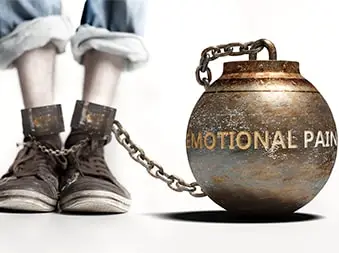Everyone Has Emotional Triggers
Emotional triggers can put you in a great mood, launch you into a state of rage, or set your recovery goals back to the stone age. I’m a person in long-term recovery. I practice emotional sobriety. I work with sponsors in two 12-step programs to help me get along peacefully with other people and the world. I still made someone cry this past week. It was not intentional and I felt terrible.
I’m not a sociopath for heaven’s sake! I was accused of doing something I didn’t do and at a very stressful moment. I didn’t take it well. When I discussed this with a mentor later that day, I saw I had been triggered and I overreacted. The point is, it doesn’t matter how serene we are or how long we have in recovery, our emotional triggers have power and can still dominate at a moment’s notice.
What Are Emotional Triggers
Emotions are an integral part of the human experience, shaping our perceptions, actions, and overall well-being. They serve as signals, guiding us through the highs and lows of life. However, there are certain moments when our emotions can become intensified, leading to profound reactions that may seem disproportionate to the situation at hand. These moments are known as emotional triggers, and they hold the key to uncovering deeper aspects of our inner selves. It’s important to understand them so we’re not surprised when big feelings and reactions come up. The goal is to see how these triggers impact our lives and to develop strategies to manage them and stay grounded.
Understanding Emotional Triggers
Emotional triggers are specific stimuli that evoke strong emotional responses within us, often linked to past experiences or unresolved issues. They can manifest as anger, fear, sadness, or any other intense emotion, making us feel overwhelmed and out of control. These triggers are deeply personal and vary from person to person, as they are influenced by our unique backgrounds, beliefs, and values. For a person in recovery from alcoholism, passing a bar or being aggressively offered a drink can be triggering. For the survivor of domestic violence or assault, the smell of the attacker’s cologne can also trigger and emotional overreaction.
The key to recovery Knowing What Your Emotional Triggers Are
Self-awareness is the crucial first step in identifying our emotional triggers. By paying close attention to our emotional patterns, we can begin to recognize the situations, words, or actions that consistently evoke strong reactions. These triggers can stem from a range of sources, such as childhood experiences, traumas, personal insecurities, or even societal conditioning. I’ve been encouraged to keep a notebook with me and mark down all the times I feel big emotions coming up. Work can be a source of big triggers as can your home life, so make sure to include any disturbances in those areas as well.
How To Manage Emotional Triggers
Once we have identified our emotional triggers, it is important to develop strategies to manage them effectively for good mental health. Here are some approaches that can help:
- Self-reflection: Take the time to reflect on the root causes of your triggers. Engage in introspection and journaling to gain a deeper understanding of the emotions they elicit and why they have such a profound impact on you. This self-reflection can foster healing and provide clarity.
- Mindfulness and self-care: Practice mindfulness techniques, such as deep breathing, meditation, or yoga, to ground yourself in the present moment. Engaging in regular self-care activities, such as exercising, getting enough sleep, and pursuing hobbies, can also help maintain emotional balance.
- Emotional regulation: Learn to regulate your emotions by cultivating healthy coping mechanisms. This may involve seeking professional help, talking to a trusted friend or family member, or engaging in creative outlets such as art, music, or writing. Find what works best for you and commit to incorporating these practices into your daily life.
- Communication and boundaries: Openly communicate your triggers to the people in your life who may be directly or indirectly involved. Establish clear boundaries and express your needs, allowing others to understand and support you in managing your triggers.
- Seek professional help if needed: If emotional triggers significantly impact your daily life and relationships, consider seeking the guidance of a mental health professional. They can provide specialized support and help you navigate through challenging emotions more effectively.
Transforming Emotional Triggers into Growth Opportunities
While emotional triggers can shake us to our core, they also hold the potential for profound growth and transformation. By exploring the underlying causes of our triggers and developing strategies to manage them, we can transcend their control over our lives. Remember, the journey towards self-discovery and emotional well-being is a lifelong process, and progress may not always be linear. Each trigger confronted and processed offers valuable insights into our strengths and vulnerabilities, empowering us to live a more emotionally balanced and fulfilling life.
More articles by Lindsey
Growing Up In Recovery After You Get Sober
What To Do When You Hate Being Sober
Sober Fun For The Spring
Check out my book 100
Tips For Growing Up

Follow us on Instagram
Like us on Facebook
Comment on our post





















